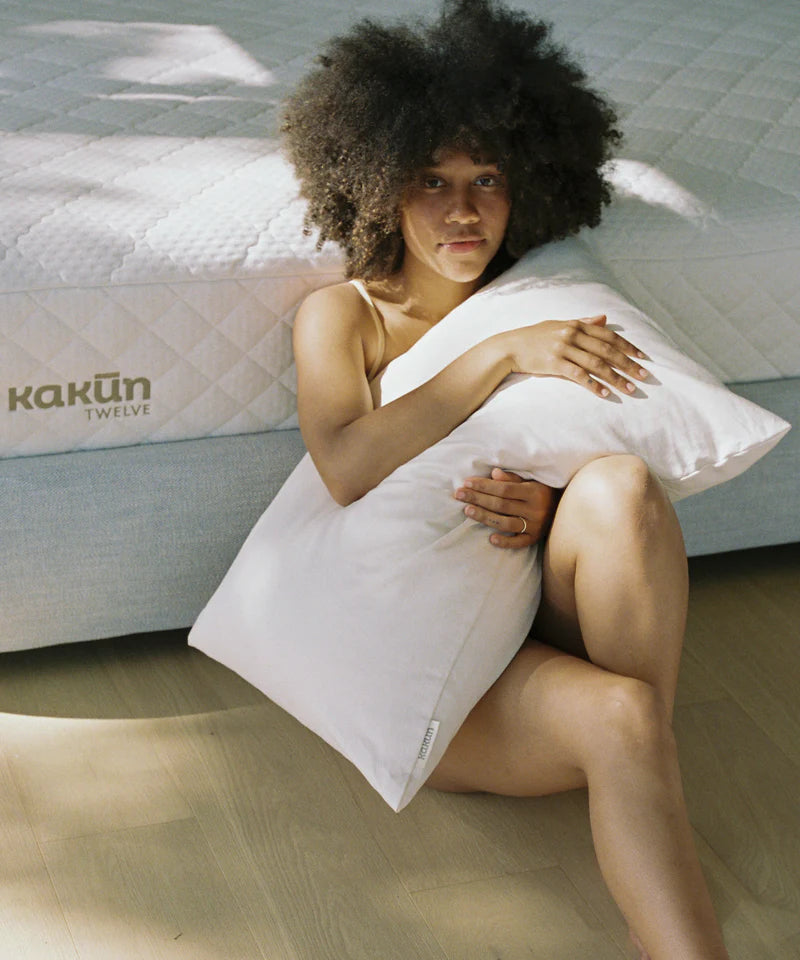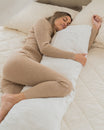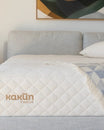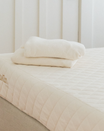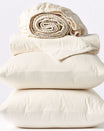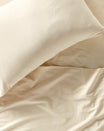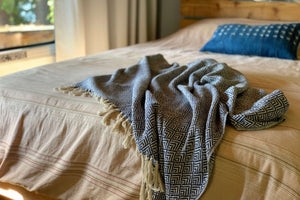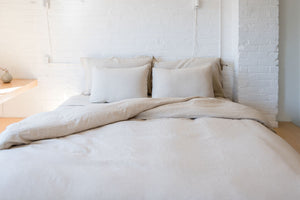High-intensity interval training. Web-connected exercise equipment. Macro tracking. Don’t skip leg day.
If you’re at all paying attention to fitness and exercise trends these days, it feels like you could spend years trying out different routines, rules, and regimens. Maybe you’ll see some benefits from some of them; a lot of them are probably just fads. But there’s one thing you can add to your workout schedule that won’t leave you feeling exhausted or hurt your knees: sleep.
That’s right. Thanks to dedicated researchers working on discovering the positive effects of a good night’s sleep, beyond just feeling rested, it’s becoming increasingly obvious that quality shuteye is a great way to boost your athletic performance. Whether you’re a high performance athlete competing on the international stage, a youth athlete just learning your sport, or even a casual exerciser out for a weekend bike ride, sleep offers the same slate of benefits. All you have to do is close your eyes. But for now, open them up and read on.
The 7 Athletic Benefits of Sleep
In the last few years, there has been a lot of empirical research done on how sleep can improve athletic performance. So much research, in fact, that trying to present it here would turn this blog post into an encyclopedia. Luckily, the journal Current Sports Medicine Reports published a literature review titled Sleep and Athletic Performance that looks at a broad spectrum of studies in this area, which we used to create the following list of benefits. Another valuable resource is Dr. Amy Bender, a sleep researcher based in Calgary, Alberta, whose Instagram account is absolutely stocked with great sleep info and definitely worth following. Dr. Bender even guested on an episode of the Sleep Junkies podcast devoted entirely to sports and fitness, for those who really want to get deep into this subject. Before you do, let’s get to the benefits.
1. Endurance
Multiple studies show that when individuals sleep more than their average, usually around eight hours, they experience greater endurance, while sleep deprivation results in less endurance. The research suggests that even though a person’s physical performance in terms of oxygen consumption and thermoregulation stays the same with less sleep, their perception of fatigue is much greater, leading to lower performance as exercise drags on.
High Performance Athletes:
For runners, cyclists, swimmers, and competitors in other sports that require continuous output of energy for a long time, the benefits here are obvious. Maintaining the psychological commitment to keep moving your legs mile after mile is hard enough as it is; doing it without enough sleep could be the difference between winning and falling on your face a few metres from the finish line.
For Youth Athletes:
Many students are competing after spending an entire day in school, which means that sports that aren’t normally considered measures of endurance could put the same demands on fatigue levels.
For Casual Exercisers:
The psychological confidence to push a little farther opens up a world of possibilities, like riding your bike to work or walking to get groceries instead of driving, two things that are healthy for the body, the mind, and the planet.
2. Accuracy and Reaction Time
Researchers have discovered that even small amounts of sleep reduction can result in poor performance of athletic activity that requires accuracy and quick reflexes. Less important for sports like running, but absolutely critical for many popular sports: basketball, baseball, tennis, and especially football. The two quarterbacks in Super Bowl LV both reported getting a lot of sleep, while Cam Newton’s seven win, nine loss Patriots seems not to sleep much at all.
High Performance Athletes:
Increased accuracy from greater sleep could mean hitting the last free throw to win the game or striking out the next big slugger up to bat. Even a little less sleep for participants in certain competitions like darts, archery, and shooting could be disastrous.
For Youth Athletes:
One study suggests that sleep loss through the week due to late night studying and early morning training could significantly impact accuracy during weekend sports competition, so be sure to get some sleep on Tuesday if you want to win on Saturday.
For Casual Exercisers:
Better sleep could mean keeping up with your boss during that crucial 18-hole golf meeting on Sunday. Don’t win though, that’ll hurt your chances of a promotion.
3. Strength and Speed
The first place many minds go when hearing the word exercise is strength. Do you even lift bro? How much do you bench?
I don’t know how much I bench, but I do know how much I sleep and how that can help with strength and its associated metric, speed. Researchers found that more sleep equals better sprint times, heavier deadlifts, and other feats of athletic performance that require highly strenuous physical demands over a short period of time.
High Performance Athletes:
For premiere athletes like Olympic sprinters, sleeping well could result in an improvement of 0.01 seconds, which doesn’t sound like much to normies like me, but could put a competitor on the podium compared to a rival who stayed up watching Netflix.
For Youth Athletes:
The same is true, though the time differences are probably not as razor thin.
For Casual Exercisers:
While sprinting probably isn’t part of Average Joe’s consideration, there are things we do every day that place strenuous demands on our bodies: running for the bus, lifting groceries, or carrying a squirming toddler. Performing everyday tasks like these without grunting is a win in my books.
4. Growth
Studies suggest that getting regular, good-quality sleep is essential for ideal hormone production and function, particularly human growth hormone and testosterone, which are necessary for muscle growth. Conversely, sleep deprivation can reduce production of these hormones, which can limit the gains you might expect to get after a heavy workout.
High Performance Athletes:
For high performance athletes who need to become stronger, faster, and in some cases larger to stay competitive in their sport, the importance of muscle growth cannot be overstated.
For Youth Athletes:
Whether kids are athletes or not, healthy muscle growth is a foundational part of growing up to be a sturdy, resilient adult.
For Casual Exercisers:
Particularly for those who are considering beginning an exercise program, muscle growth is a great way to see early positive results, and transforming fat into muscle might also make those khakis fit a little better around the midsection.
5. Cognition
Something you might not consider to be a big part of exercise is cognition, which is to say, learning and decision making. But your arms and legs aren’t independently flailing back and forth when you jump into the deep end of the pool; there’s a brain attached and it’s doing quite a bit of the work. Everything from learning new strategies and understanding body position, to making key decisions in the heat of the moment depend on the brain. And if it didn’t get enough sleep the night before, cognition suffers.
High Performance Athletes:
For pros, like football players, this may mean more time spent trying to understand their opponent’s plays, or even failing to make the right choice at a key moment, like running the ball when passing was the better call.
For Youth Athletes:
Learning may be even more important than the physical aspects of competition for young people. Better sleep leads to quicker understanding of foundational strategies, body mechanics, and even things as simple as the rules of the game, setting up young competitors for greater success down the road.
For Casual Exercisers:
More sleep makes it easier to learn new things, like a new stroke in the pool, how to ride a bike (or fix a punctured tire), or when you’re allowed to crack open a cold one during a game of softball.
6. Immunity and Recovery
Staying healthy doesn’t automatically make you a better athlete. But getting sick or injured is definitely an obstacle in the way of greatness. Researchers have found that lack of sleep has both an immunosuppressive effect (especially for respiratory tract infections), as well as an increased risk of injury. Amazingly, one study found that athletes who slept less than eight hours per night were 70% more likely to sustain an injury. So, if you want to stay in the game, get a good sleep.
High Performance Athletes:
Elite athletes are subject to a lot of extra stresses and risks that the rest of us don’t have to deal with: being in contact with a lot of potentially sick fans who want hugs, frequent air travel, the pressure to play as hard as possible regardless of health or wellbeing. Sleep may not prevent injury or illness 100% of the time but it may be enough to stave off the evil until the offseason.
For Youth Athletes:
Adults aren’t the only ones with demanding lives. As important upcoming members of society, youth athletes need adequate rest to play at their highest possible level, travel to away games, continue to attend classes, work part-time jobs, and enjoy being kids. Plus, injuries early in life tend to create chronic problems later on (ask this author about his knees), so recovery is especially important to young competitors who want to lead long, active lives.
For Casual Exercisers:
A good sleep might be the difference between getting out for a tennis match after work and giving your entire office a head cold (don’t go to work sick!)
7. Mood
For Everyone:
This one is the simplest of all. A good sleep drastically improves your mood. And since exercise is ultimately supposed to be fun, it helps to start with a positive frame of mind, regardless of whether you’re a pro, a youth, or someone who likes to go jogging in jorts.
Positive Feedback
At Resthouse, we understand all too well that just saying “get a good sleep” isn’t enough for everyone because not everyone sleeps well. Fortunately, during this survey of scientific literature, we also learned that the evidence supports something that intuitively makes sense: exercising more helps you sleep better. It’s a positive feedback loop. Sleep more, perform better, exercise more, sleep better. Amazing!
We also recognize that while exercise may help you to get a good sleep, there are some other things that you can add in to your sleep system to help with your training regimen. Clean air is necessary for recovery after a sweaty workout, so we stock only organic bed linens and mattresses that keep the air in your room free of chemical off-gasses or allergens, meaning you breathe easy all night long.
Our bedroom products are also breathable, which means they regulate your temperature. This is great for everyone who wants to stay comfy all night long, but especially important for those who exercise close to bedtime, since your body temperature may be elevated when you hit the sheets and then plummet as you relax.
And lastly, we always stock the most comfortable, innovative pillows for your head and body, many of which are customizable for your specific needs, so your head, neck, spine, shoulders, and hips stay in correct alignment as your body does its important nighttime healing and you wake up just a little stronger than the day before.
So run, don’t walk, down to the Resthouse showroom to outfit the bedroom that will help you jump higher, run faster, and swim longer than ever before. Just kidding, you can walk.


